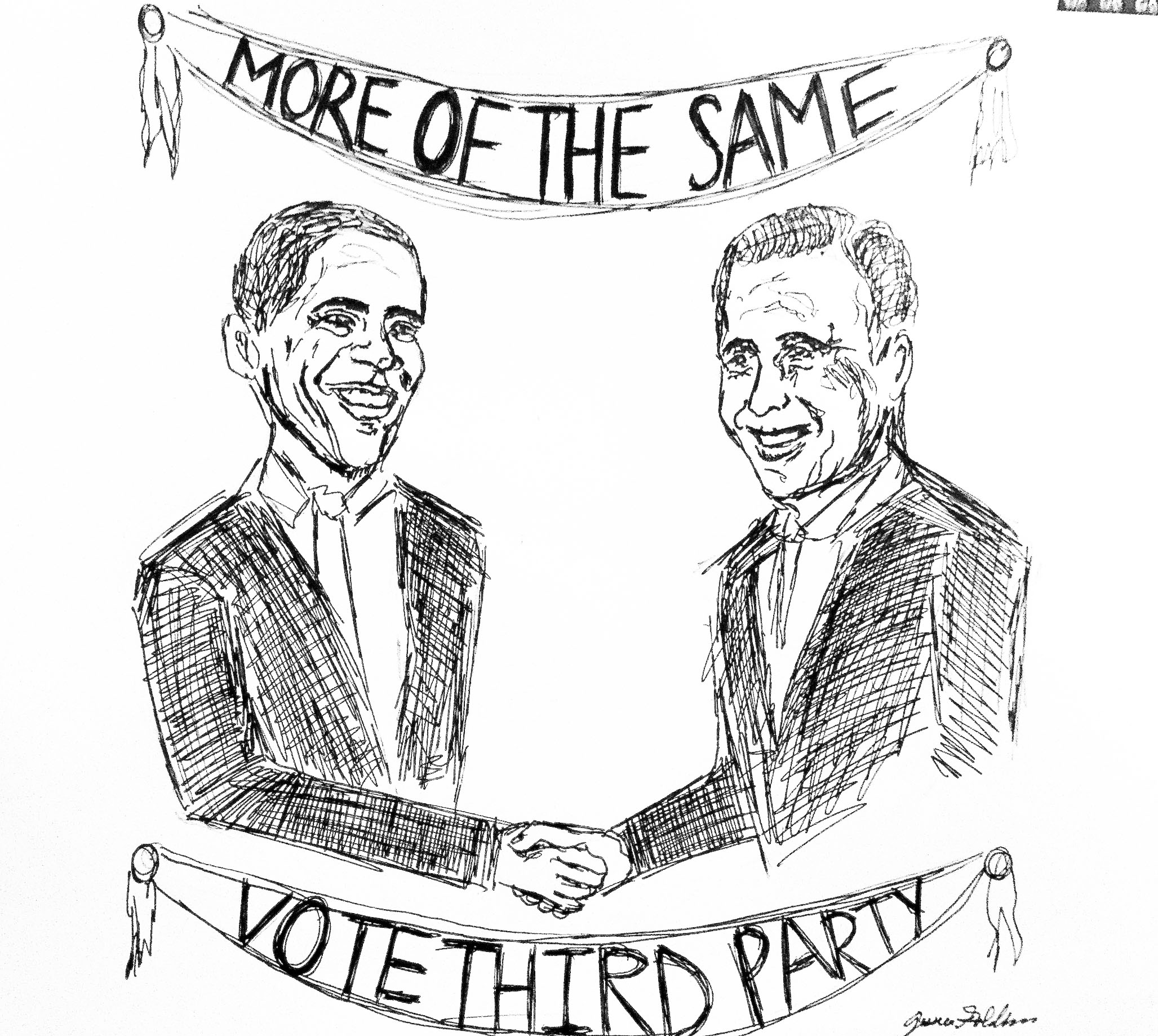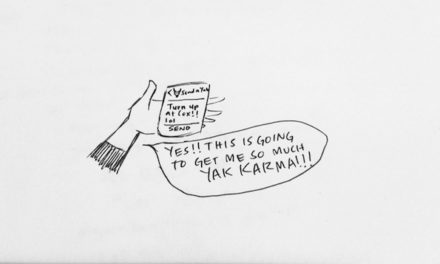Pop Quiz: 1) Which presidential candidate supports ending the “War on Drugs?” 2) Which candidate opposes the Patriot Act? 3) Which supports overturning Citizens United? 4) Which proposes significant cuts to the Pentagon’s budget?
If your answer to any of these questions was, “None of the above,” you’re wrong. Despite what television news outlets may tell you, voters have more than just two choices in this upcoming presidential election. Unfortunately, we are led to believe that Barack Obama and Mitt Romney are our only viable options – a vote cast for anyone else is a vote cast away. This may be true today, but it doesn’t have to be.
Rocky Anderson, former mayor of Salt Lake City, Utah, and Justice Party presidential candidate, renounces what he terms the “political duopoly” to which we are subject today. His concern for being a spoiler candidate – siphoning votes from one candidate to benefit the other – kept him from announcing his bid for the White House initially. However, according to one of many videos he has released, the only way to disrupt the current system dominated by Democrats and Republicans is by establishing a third party. Thus, the Justice Party of the United States was born, emphasizing civil and human rights, health care for all and environmental awareness.
Other equally-passionate presidential candidates have arisen as well. The Green Party’s Jill Stein actually debated – and was ultimately beaten by – Mitt Romney in the 2002 Massachusetts gubernatorial race. Her Green New Deal details an environmentally-friendly way to stimulate the economy. It calls for an economic bill of rights, a transition to a green economy, financial reform and democratization efforts.
The United States’ third-largest political party, the Libertarian Party, puts their faith in presidential hopeful Gary Johnson. This former New Mexico governor is a fiscal conservative who espouses social and economic liberties. He stands firmly against the War on Drugs and supports a limited role of government.
These candidates, who represent only a few of the third-party candidates running in the 2012 presidential election, face a number of challenges taken for granted by Republicans and Democrats. Ballot access is a major issue. Gary Johnson is expected to be on the ballot in all 50 states, but several states are still pending. He is the only third-party candidate slated to be on every state’s ballot. Without the major exposure enjoyed by Obama and Romney, fundraising and voter outreach are much more difficult. Many candidates reject corporate or super PAC funding on principle, running on platforms which would eliminate corporate personhood or overturn the Citizens United ruling. Thus, they rely solely on donations from individuals, a task which is confounded by the virtual lack of media coverage.
“Why should I care?” you might ask. “Barack Obama has done great things for the country, particularly for young people.” The reason we should care, particularly we young people, is that there is no legitimate difference between Democrats and Republicans. Obama mobilized droves of young people in the 2008 election with rhetoric of change. However, all we have seen is the same corporate welfare, military presence in the Middle East, tax cuts for the wealthy and political gridlock which has marked this young century’s policy. On the other hand, many third-party candidates support issues which align with voter popular opinion, like single-payer Medicare and an increase in the minimum wage.
Third parties have the potential to effectuate real change. Introducing at least one additional political party to the scene will foster compromise – a concept few lawmakers are able to grasp these days – by eliminating any single-party dominance of Congress. A legitimate third-party candidate could ignite a new dialogue in the country. We saw this recently with Ron Paul’s presidential campaign. While not affiliated with any third parties himself, he has vocalized his support for third parties and has spoken out against the current two-party system. Paul has enjoyed some media coverage thanks to his participation in Republican primary debates, and as a result he has gathered a relatively substantial following.
Voting for Rocky Anderson, Jill Stein, Gary Johnson or any other third-party candidate in the upcoming election will probably amount to little in terms of putting one of them in the White House. However, that vote would serve as a vote in support of a multiparty system like the ones in place in Finland, Sweden, Canada, Denmark and the Netherlands – each of which ranked ahead of the U.S. on Newsweek’s list of both the world’s best countries and best political environments.
As young people, we will be inheriting the country as it is left to us by the generation in power. We can continue to be complacent with the political duopoly in place. Or we can heed the advice of some of our country’s intellectual founders, like George Washington and Jean-Jacques Rousseau. On the first Tuesday of November every other year, the power is in our hands. We deserve better than the illusion of choice currently being presented to us. We deserve to have more parties.
William Hupp is a College sophomore from Little Rock, Arkansas.
The Emory Wheel was founded in 1919 and is currently the only independent, student-run newspaper of Emory University. The Wheel publishes weekly on Wednesdays during the academic year, except during University holidays and scheduled publication intermissions.
The Wheel is financially and editorially independent from the University. All of its content is generated by the Wheel’s more than 100 student staff members and contributing writers, and its printing costs are covered by profits from self-generated advertising sales.





Eugene V. Debs